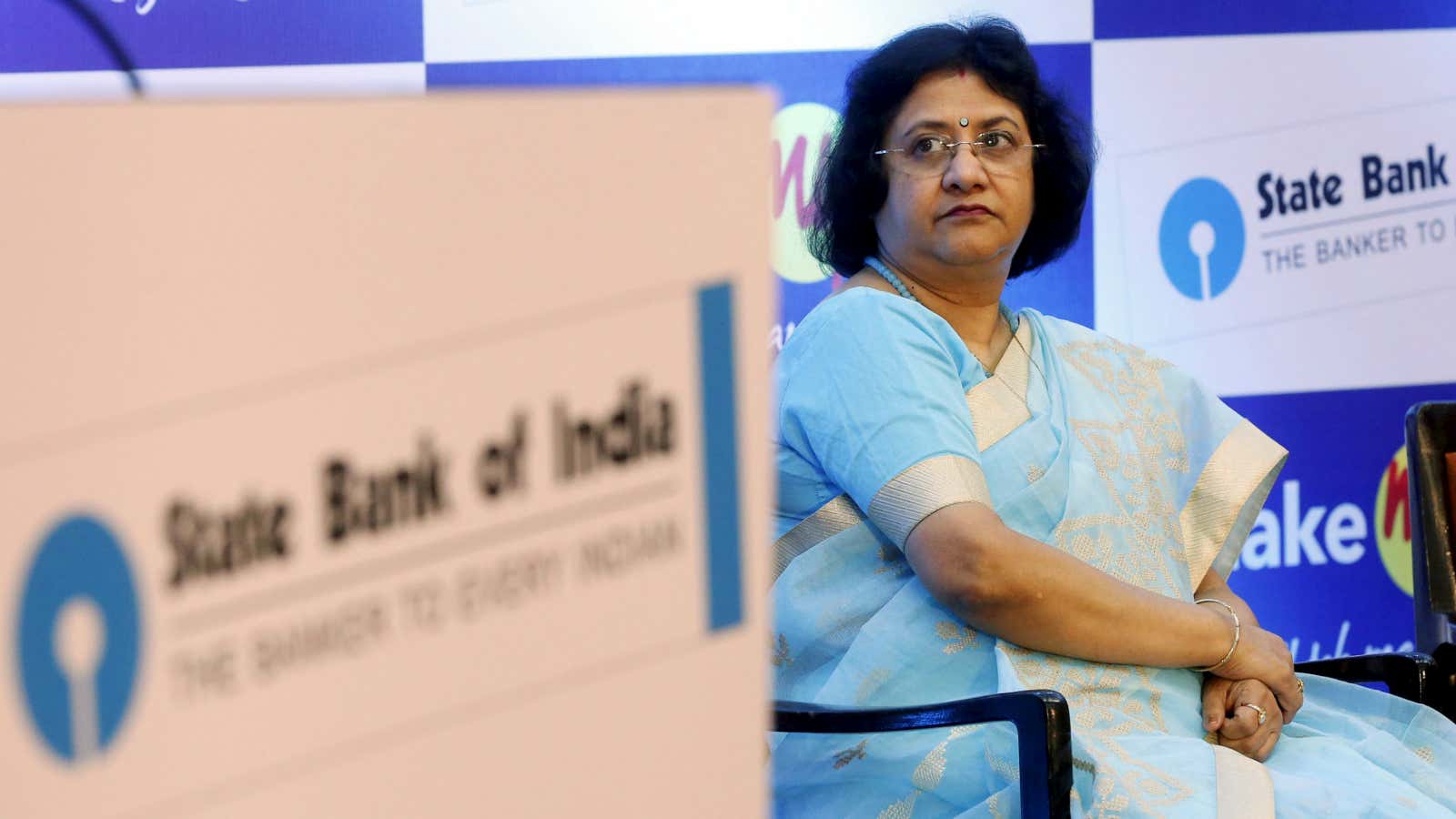India’s largest lender by assets, the State Bank of India (SBI), just got hammered by bad loans.
The state-owned bank’s profit for the third quarter of the 2016 fiscal (October-December) fell 62% compared to a year ago, according to its earnings report (pdf) released on Feb. 11.
Non-performing assets (NPAs) are the main culprit.
The NPA provisions for the quarter shot up 59% compared to a year ago, while the gross NPA ratio inched upwards to 5.1% from 4.15% in the previous quarter. The NPA ratio is an indicator of the bank’s overall health—a higher ratio means more bad loans. Banks make provisions—set funds aside—typically to cover for default risks.
According to the Reserve Bank of India (RBI), an NPA is a loan where interest or principal has not been paid for more than 90 days.
SBI’s earnings are further evidence of bad loans plaguing the banking sector in Asia’s third-largest economy. The bank made a profit of Rs1,115.34 crore in the quarter, compared to Rs2,910.06 crore in the same period of the last fiscal. Analysts surveyed by Bloomberg had estimated a Rs3,300 crore net profit.
SBI’s stock fell as much as 1.57% on the BSE, after the results were announced.
Everyone, from analysts to RBI governor Raghuram Rajan, has warned of these toxic bad loans. Public sector banks (PSBs) held gross NPAs worth almost Rs3 lakh crore ($44 billion) as of June 2015—89% of the total NPAs in the entire banking system.
Interestingly, The Indian Express newspaper on Feb. 09 reported that state-owned banks have written off bad loans worth Rs1.14 lakh crore between 2013 and 2015 fiscal years, and 40% of these loans were waived by SBI.
Rajan has set a March 2017 deadline for banks to set up provisions to cover these bad loans.
Other PSBs too reported dismal earnings this week. For instance, Punjab National Bank said on Feb. 09 that profit for the third quarter had dropped 93%, owing to higher NPAs, especially in the steel, power and infrastructure sectors. Other banks such as the Central Bank of India, Allahabad Bank, and Dena Bank reported losses.
In January, SBI chairman Arundhati Bhattacharya, had said that the extra provisioning ordered by the RBI might not hit the bank as hard. ”I have no idea as to where and why these concerns are coming. I would suggest that you should have a little patience to see how things pan out,” she said.
Thursday’s quarterly numbers may have come as a rude shock to Bhattacharya.
